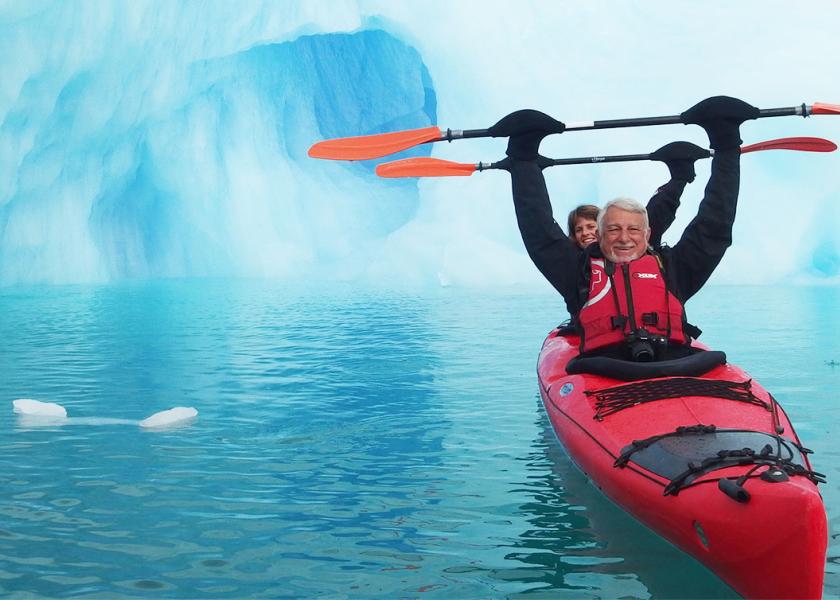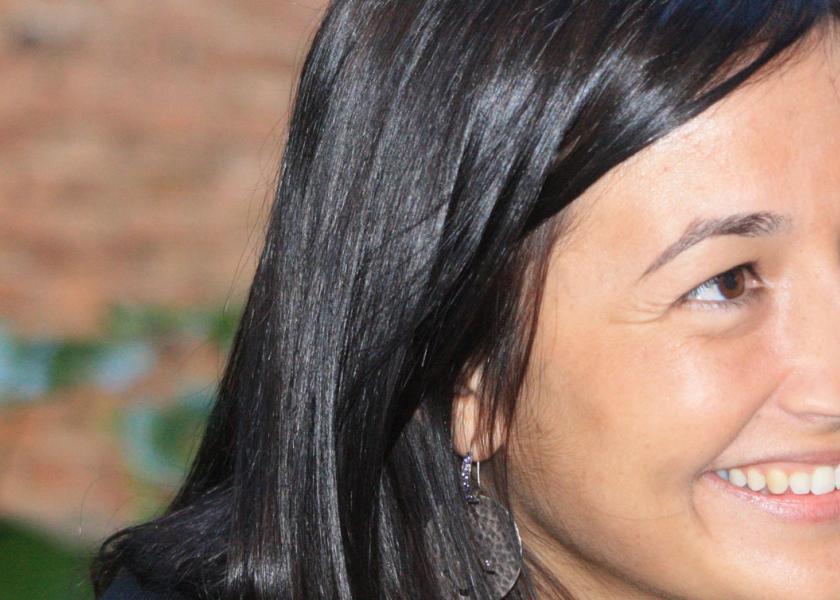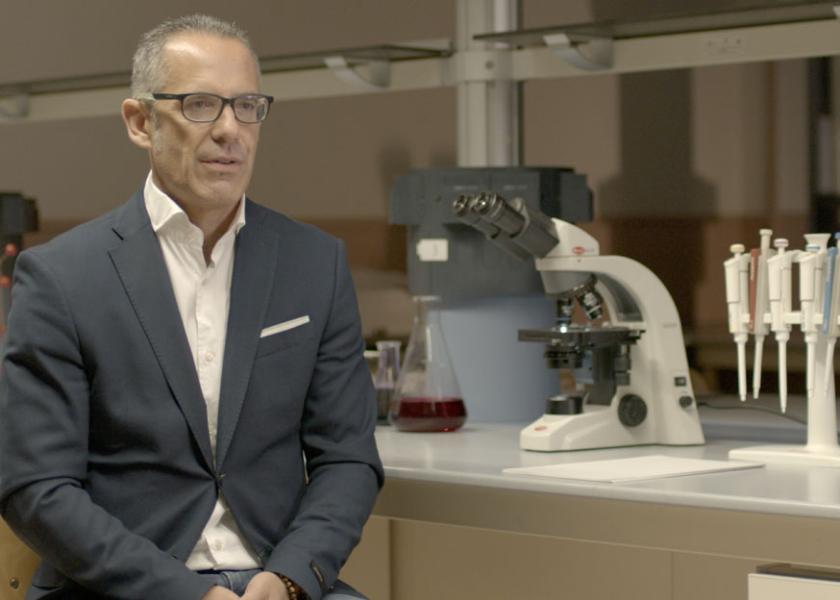Carlos Duarte
The future of the planet
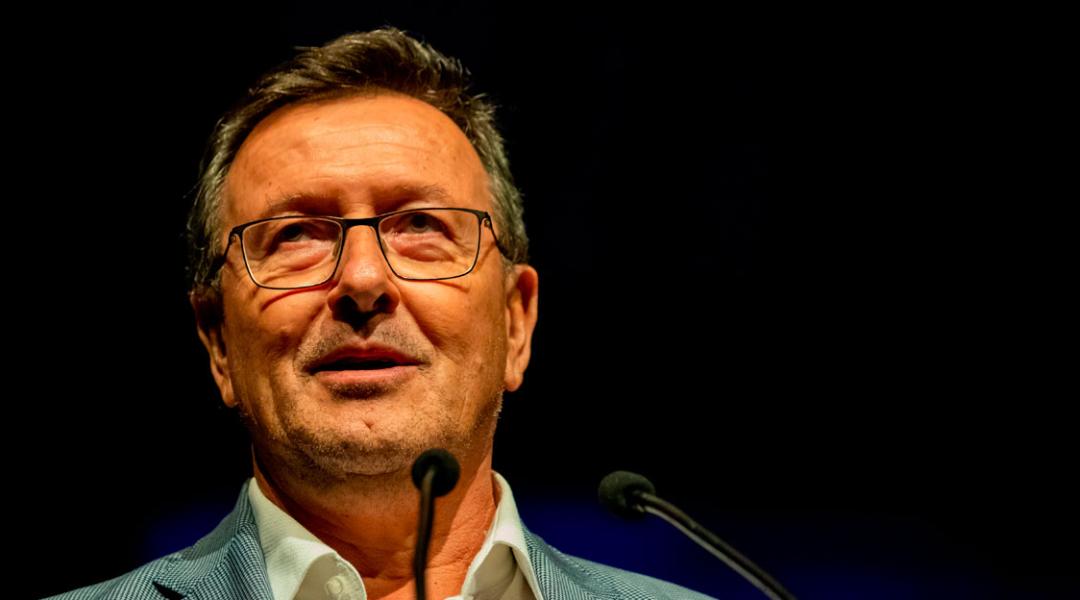
Changing the message from pessimism to hope. This is what Carlos Duarte, one of the most renowned oceanographers worldwide and winner of the MadBlue Five Oceans Award, asks regarding climate change. He believes that drawing a future that is worth fighting for or, in other words, a better future for our children and grandchildren, is the best way to raise awareness within society.
The sea has always been a part of Carlos Manuel Duarte (Lisboa, 1960), but he denies that his love for it was vocational. In fact, it wasn’t until university, thanks to ecology, that he set his sights on that immense blue mass that covers two thirds of our planet. Our future facing the threat of climate change depends on its conservation, and that task he has spent the last decades of his life becoming one of the most prominent oceanographers in the world. The jury of the MadBlue Five Oceans Awards, delivered in the context of the MadBlue Global Summit —event sponsored by Iberia—, agrees: “For his dedication to researching marine ecosystems and his efforts to preserve ocean biodiversity.”
Which role do oceans play in the fight against climate change?
Oceans help regulate the climate because they absorb most of the heat —up to 97%—. They also remove a third of the greenhouse gases that we release into the atmosphere. Without them, temperatures would already be unbearable. But oceans are also victims of climate change because their temperatures are rising and CO2 changes the water chemistry, decreasing the pH and generating acidification that affects marine organisms.
So, would we be right in saying that we’ve paid less attention to oceans than they deserve?
Absolutely. Not only because of the impacts of climate change, but also because of the opportunities they offer to deploy solutions against this problem, such as offshore wind energy or wave power. Also, restoring marine ecosystems, which are the planet’s largest carbon sinks and help mitigate climate change.
“We scientists sometimes think we provide solutions, when really these are cocreated between many actors in society”
The role of scientists is essential to preserve the planet, but you defend that their work is useless if the rest of society doesn’t get involved. Is there still a lack of awareness?
More than a lack of awareness, there’s a problem with communication. Given this global challenge, both scientists and communicators always point towards pessimistic headlines. Since they only highlight negative scenarios, part of society understands that they are inevitable and fall into apathy or scepticism; stop trying because they haven’t been told what the future will be like from a positive point of view. We scientists sometimes think we provide solutions, when really these are cocreated between many actors in society, and communicators help population to understand problems, discover solutions and get involved.
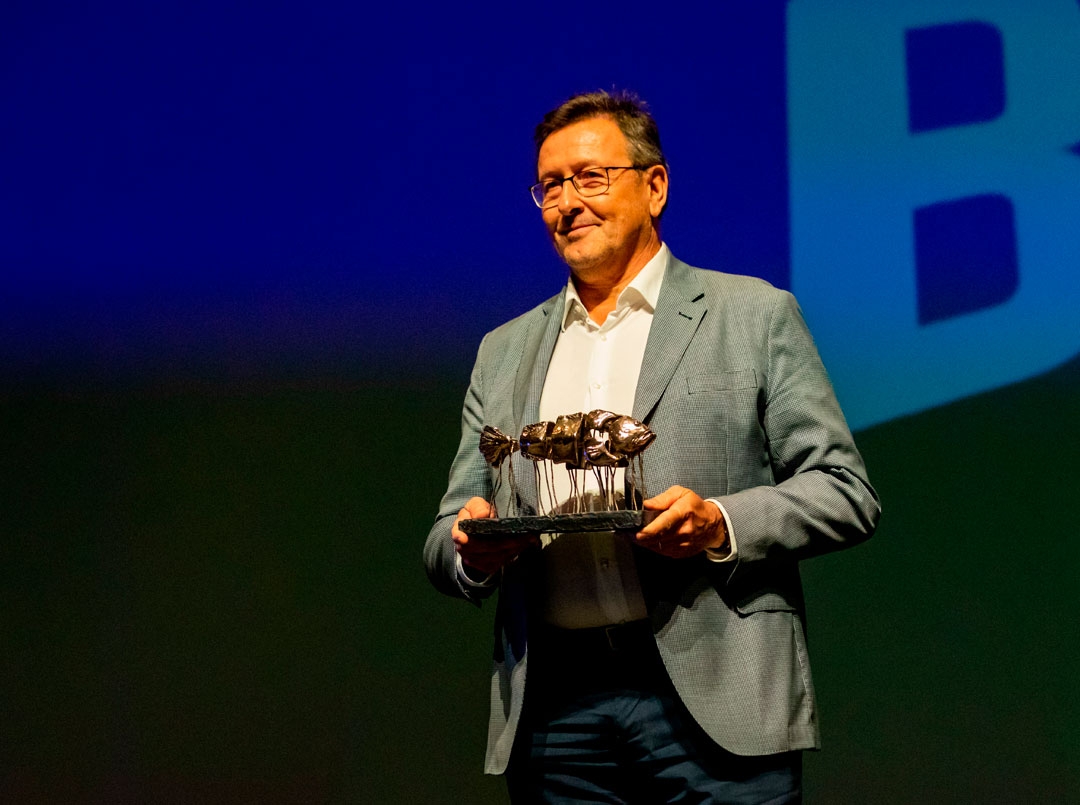
Carlos Duarte’s career has received further recognition: the MadBlue Five Oceans Award. © MadBlue
Must society, understood as a set of individuals, be willing to make certain sacrifices for the sake of the planet?
The word sacrifice is very subjective, it depends on each person’s definition of it. Sometimes you consider certain things a sacrifice but then they improve your quality of life. One action that doesn’t cost anything is which government programmes we vote for and how committed they are to the solution. We must return to the source of the word sustainability, which has almost become meaningless due to overuse, and understand that we’re talking about responsibility with our children and grandchildren, about the options we’ll give them of having a life that’s worth living. I don’t think any parent or grandparent thinks about leaving their children or grandchildren a worse world or life. So, I wouldn’t call it sacrifice, but rather responsibility.
Are there increasingly more deniers or do they just make more noise now?
Unfortunately, recent years have seen the rise of groups who deny aspects that science has had conclusive proof on for some time, such as the fact that the world is round: there are flat-earthers! And this also affects climate change. The noise generated by social media, which are neither moderated nor fully committed to fact-checking, causes confusion.
“I don’t think any parent thinks about leaving their children a worse world. So, I wouldn’t call it sacrifice, but rather responsibility”
Right now, your main subject of study is the Red Sea; what can we learn from it?
Due to its location, it’s the warmest sea on the planet and where we find organisms that have managed to evolve to resist temperatures that would be lethal to others. Therefore, it’s a unique laboratory to research the capacity of marine life to adapt to the temperatures that many areas of the ocean will experiment in the future.
You’ve also reported noise in the oceans. It may sound sensationalist, but are we human beings stressing out marine species?
It’s not at all sensationalist, because that’s exactly what’s happening. Our hearing isn’t designed to perceive underwater noise, which is why when we put our head under water we perceive silence, but the reality is extremely different: the ocean is full of organisms that communicate with each other. Now, the problem is that all the noise generated by human activity —especially marine transport, which is present at a global scale 24/7— creates a cacophony that prevents animals from communicating with each other to guide their movements and behaviours.
“Talent is the ability to look the same thing that others and see different things. There’s an innate part, a tendency towards curiosity, and another part that is polished throughout your life”
How does one become a prominent figure in oceanography? That is, where does your passion come from?
I’ve always been attracted to the sea, and I’ve always lived close to it —my father is Portuguese, and my mother is from Málaga—, but I never felt a vocation for it from a scientific perspective. I wasn’t the typical child that investigates sea animals, and I can’t say that I was interested in Cousteau’s documentaries, like many of my colleagues. My scientific approach emerged at university when I encountered ecology, which is a relatively new science with a lot to discover. To get a better understanding of the relationship between organisms and their ecosystems, I started scuba diving in the ocean.
What is talent to you, one of the most renowned oceanographers in the world?
Talent is the ability to look the same thing that others and see different things. There’s an innate part, a tendency towards curiosity, and another part that is polished throughout your life based on often unpredictable experiences, which guide that talent and bring it to the surface. Then there’s perseverance at work because, without this, talent would never be expressed.
Finally, are you optimistic or pessimistic regarding the future of the planet and the oceans?
If you’d asked me this question 20 years ago, I would’ve said that I was pessimistic. Nevertheless, now I can be optimistic because, between us all, we’ve made some achievements. The planet’s decline seemed beyond repair, but we’ve experienced a turning point; we’re starting to slow it down and, in many cases, the curve is following an upward trend. Although more than optimistic, I like to say that I’m hopeful because optimism is an attitude that believes that everything will be all right without doing anything, while hope is based on hard work and perseverance. So, yes, I’m hopeful for the future because we’re building its foundation.
